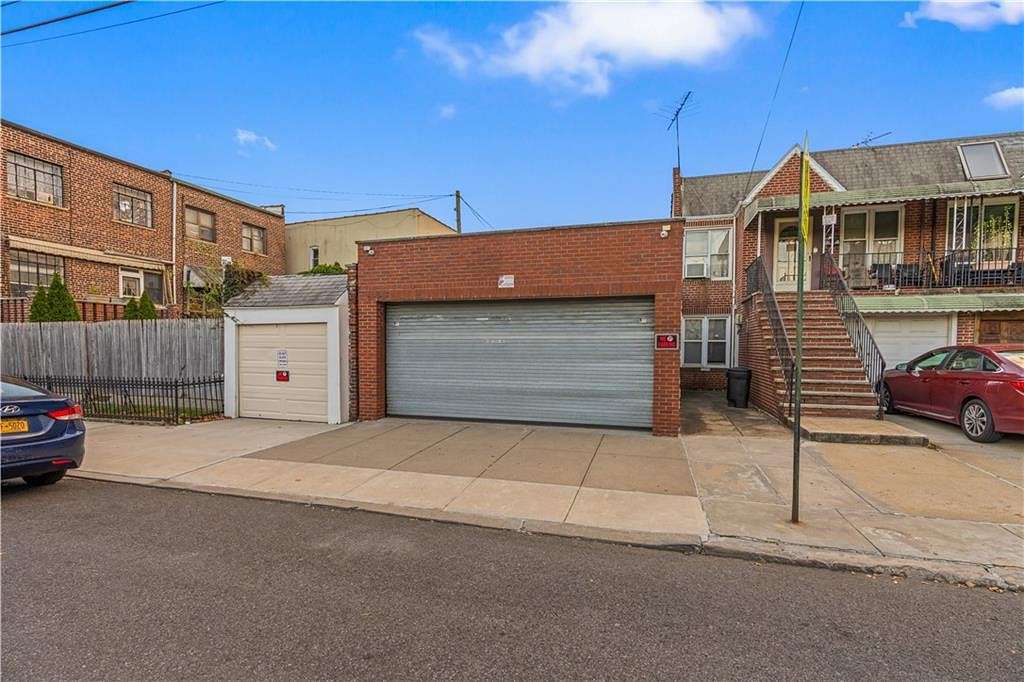Lots For Sale Brooklyn – The rise of online platforms has transformed the way second-hand goods are bought and sold. Additionally, purchasing second-hand electronics can be a way to access high-end models at a lower price. Many high-quality products come with a rich history, whether it’s the legacy of a renowned brand or the personal touch of a local maker. Additionally, there is the challenge of integrating the business into their existing operations and ensuring that it continues to thrive under new ownership. The sale and purchase of second-hand goods play a pivotal role in this transition, demonstrating how individuals can make a meaningful impact through everyday choices. The concept of a circular economy, where products are reused and repurposed instead of discarded, is central to the appeal of second-hand goods. Whether buying or selling, the process requires careful consideration, transparent communication, and a thorough understanding of both the financial and operational aspects of the business. When consumers buy these goods, they are investing in both the product and the people behind it. For many, purchasing second-hand goods is not just about saving money, but about embracing sustainability, supporting a circular economy, and contributing to a more environmentally conscious world. It’s a moment of transition, and as with all transitions, it brings with it both excitement and uncertainty. Some businesses are sold because the owner is ready to retire, while others might be sold due to financial difficulties or changes in the owner’s personal or professional life. Love becomes about what someone can provide in terms of material or emotional benefit, and friendships become alliances, where loyalty is traded for favor or influence. Through online marketplaces and platforms, small businesses and independent creators can sell their goods to a global audience. For sale, it seems like a simple phrase, yet it carries with it an array of possibilities, emotions, and decisions that can shape someone’s life. Online platforms also give buyers and sellers the chance to evaluate one another through reviews and ratings, adding an extra layer of trust and security to the transaction. Both the buyer and the seller are seeking the best possible terms, and finding common ground can be a challenge. Similarly, vinyl records have experienced a resurgence in recent years, with collectors seeking out rare albums and vintage pressings. In recent years, the market for businesses for sale has been affected by several global and local economic factors. The democratization of commerce has opened up opportunities for millions of people, giving them the chance to pursue their dreams and create their own paths to success. The materials, labor, and expertise that go into crafting these items naturally make them more expensive.

530 New Lots Avenue, Brooklyn, NY 11207 Trulia
Search by commute timeview local noise levelsdraw your own search area

542 New Lots Ave 1, Brooklyn, NY 11207 Trulia
Search by commute timeview local noise levelsdraw your own search area

865 Liberty Ave Brooklyn, NY 11208 Land Property for Sale on
Search by commute timeview local noise levelsdraw your own search area

For Sale 1317 40th Street, Single Family in Boro Park, Brooklyn, NY
Search by commute timeview local noise levelsdraw your own search area

31 Sumpter St Brooklyn, NY 11233 Land Property for Sale on
Search by commute timeview local noise levelsdraw your own search area

Residential Land for Sale in Brooklyn, New York LandSearch
Search by commute timeview local noise levelsdraw your own search area

0.046 Acres of Residential Land for Sale in Brooklyn, New York LandSearch
Search by commute timeview local noise levelsdraw your own search area

Brooklyn, NY Land for Sale 127 Properties LandSearch
Search by commute timeview local noise levelsdraw your own search area

274 E 32nd St Brooklyn, NY 11226 Land Property for Sale on
Search by commute timeview local noise levelsdraw your own search area

205 New Lots Ave, Brooklyn, NY 11207 Trulia
Search by commute timeview local noise levelsdraw your own search area
The satisfaction of purchasing quality is often deeply intertwined with the knowledge that your money is going toward something that truly deserves it. Sellers often find themselves in a strange position, balancing the emotional attachment to the item with the rational need to let it go. Many people find that buying second-hand furniture allows them to acquire high-quality pieces that are built to last, often with a level of craftsmanship that is hard to find in mass-produced furniture. The concept of quality, however, is not a one-size-fits-all. By choosing second-hand goods, consumers can help reduce waste, conserve resources, and lessen the demand for new production. Social media platforms, for example, offer users a chance to buy into their own identity, to curate a version of themselves that is more appealing, more desirable, more marketable. This subjective nature of value is what makes the “for sale” market so dynamic. Whether it’s a vintage armchair, a gently used dining table, or a piece of mid-century modern furniture, second-hand furniture can be both functional and stylish. For the buyer, purchasing a home is a dream realized, a step toward security and stability. The adage “you get what you pay for” rings especially true in the realm of quality goods. Whether buying or selling, the process requires careful consideration, transparent communication, and a thorough understanding of both the financial and operational aspects of the business. But the price of quality goods can often be a barrier for many. In the realm of real estate, for instance, selling a house is often an emotional and logistical challenge. Unlike starting a business from scratch, which requires time to build a reputation and establish market credibility, buying an existing business means stepping into an environment where some of the groundwork has already been done. In the age of immediacy, it can often feel as though many goods are made with built-in obsolescence, created to be replaced every few years. These concepts, they say, are too sacred, too important to be reduced to mere transactions. The idea of buying things that were once owned by someone else is no longer considered taboo or lesser; rather, it has become a lifestyle choice for those who want to make smarter, more ethical purchasing decisions. The online second-hand market has also made it possible for people to buy and sell niche items that may not be available in local stores. Whether through local thrift stores, online marketplaces, or garage sales, the option to buy pre-owned items has created a flourishing market that continues to grow. The advent of these online platforms means that consumers can hunt for items they might have otherwise overlooked or been unaware of, sometimes at a fraction of the original cost.
The object becomes more than just an object – it transforms into a transaction, an exchange of value. Social movements and grassroots organizations work tirelessly to provide resources and support to those who need it, often without expecting anything in return. What will come next? What new opportunities will arise from this decision? When an item is placed “for sale,” it’s not just the object that’s changing hands; it’s often a reflection of the personal changes happening within the seller. The focus on longevity and reliability is what sets these goods apart from their mass-market counterparts. For instance, when someone is job hunting, it can feel like they’re placing themselves on the market, waiting for the right offer. Whether someone is looking to sell their business as part of a strategic decision or to retire, or whether a potential buyer is seeking an opportunity to invest in an established company, the process of buying and selling businesses is a common yet intricate part of the global economy. These moments remind us that there is more to life than the pursuit of profit, and that not everything can be measured by a price tag. Both buyers and sellers should approach transactions with honesty and transparency to ensure a smooth exchange. The notion suggests a world where anything and everything, regardless of its intrinsic value, can be bought, sold, or traded. The idea of “everything for sale” challenges our understanding of what is sacred, what is essential, and what is truly priceless. Online platforms also give buyers and sellers the chance to evaluate one another through reviews and ratings, adding an extra layer of trust and security to the transaction. While buying and selling second-hand items can come with its challenges, the rewards—both financially and environmentally—make it a worthwhile pursuit for many people. Just as with material possessions, when a person is “for sale,” they put their value on display for others to assess. Entrepreneurs can launch businesses from their homes, and freelancers can offer their skills to clients across the world. A home, a car, a piece of jewelry, a moment in time, a relationship — all of these things, at some point, become commodities. Some businesses are sold because the owner is ready to retire, while others might be sold due to financial difficulties or changes in the owner’s personal or professional life. Buying second-hand goods has numerous advantages. Many quality goods are made by artisans or small businesses who take the time to create products that reflect their expertise and passion. Many brokers specialize in certain industries or types of businesses, allowing them to better serve their clients by offering specialized knowledge and advice. While some people may be hesitant to purchase pre-owned electronics due to concerns about quality or reliability, the second-hand market for electronics has become increasingly trustworthy.